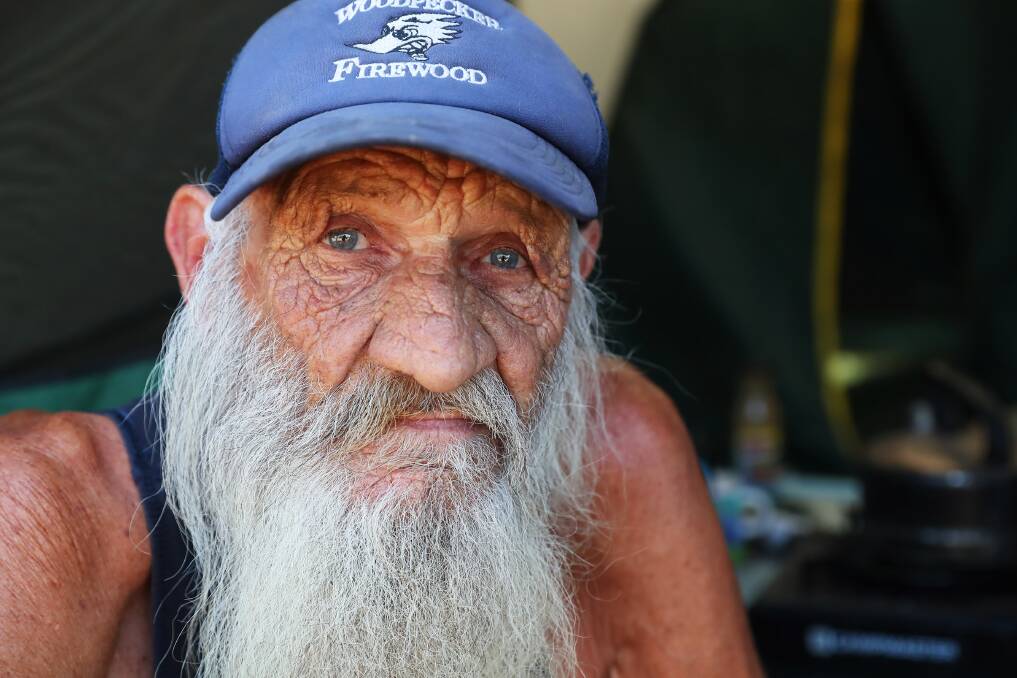
SLEEPING ROUGH: Chris Matthews says he hopes to stay at Wilks Park rather than move in to social housing where he was left fearing for his safety. Picture: Emma Hillier
CONFUSION around the use of Crown land by Wagga’s homeless population has been cleared after the department in charge stated it was not to be used for accommodation.
Many of the city’s homeless residents call Wilks Park home, and after a notice to move on by February 1, turned to the bordering Crown land as the next best option.
But a Department of Planning, Industry and Environment spokesperson said that was not a solution.
“The whole of the area in question is Crown land reserved for camping and public recreation,” they stated.
Wagga Council has designated a portion of the reserve for free ‘primitive camping’ in line with said plan of management, according to the spokesperson.
“The [remainder] of the reserve is not available for camping and is managed as a natural area,” they stated.
So despite beliefs that Crown land is free for public use with no restrictions, the department in charge said that is not the case.
With those living on the grounds fearing they have nowhere else to go, a Department of Communities and Justice spokesperson said their representatives regularly visited people sleeping rough to offer assistance.
“DCJ offers housing assistance to every eligible person sleeping rough who is willing to engage with DCJ and support services,” they stated.
“DCJ offers permanent, affordable housing as quickly as possible and works with support services to provide health assistance and connection to community supports to help people avoid returning to homelessness.”
But one Wilks Park resident Chris Matthews said he had tried social housing options in the past, and had a “bad experience”.
“You just get grouped into these blocks with the druggies and alcoholics and you’re too scared to even leave your house because you’d come back to smashed windows and all your things stolen,” he said.
According to the DCJ, the NSW Government has introduced laws and policies to reduce harmful antisocial behaviour in social housing.
If police find evidence of illegal behaviour at a DCJ property, action can be taken under an antisocial behaviour policy.
Member for Wagga Joe McGirr was also approached by Mr Matthews in an effort to seek support for their situation, and said the concerns were passed on to the DCJ.
“I have been liaising with Wagga City Council since notified of the situation 10 days ago,” he said.
“My understanding is that Wagga City Council has been flexible about the 72-hour stay limit because of the complexities that the COVID-19 restrictions and border closures created for many travellers.
“However, I also understand this is a public health issue and council is obliged to enforce the time limits. Wilks Park is not designed for long-term accommodation.”
Dr McGirr said is was “important that anyone who needs support is offered it”.
“I understand from my discussions with DCJ that they are working with the people who will be affected and I will make sure this continues,” he said.
Many of those in need were referred by DCJ Housing to the Together Home program through Argyle Housing and were assisted with accommodation and support, according to the department, while others were assisted with temporary accommodation.
The DCJ also recorded a small number of people who declined assistance and have asked staff not to be spoken with further.